SYNTHETIC TURF TOXICITY OVERVIEW
Synthetic turf contains known carcinogens & neurotoxins: lead, mercury, cadmium, PAHs, VOCs, SVOC, phthalates, benzene, toluene, and carbon nanotubes.
CDC & AAP are unequivocal that there is no safe level of lead exposure and lead has been present in both tire infill and plastic grass.
Each synthetic field is filled with 50k shredded waste tires.
Synthetic turf fields are clearly marketed to elementary schools and pre-schools via promotional materials, as well as older age groups.
Tires are not created for children’s standards, and synthetic turf is not regulated as a children’s product.
Children are uniquely vulnerable to exposure to neurotoxins, carcinogens & other toxins.
The three vectors for exposure are inhalation, ingestion, and dermal uptake.
There have been no studies of synthetic turf components for use by children in close, frequent contact, in high heat, over time.
Grass stays at/near 85-95 degrees; Synthetic turf regularly gets into 140s & 150s; gets up to 200 in Nevada, Hong Kong & others. Heated synthetic turf can melt shoes and blister hands and feet.
Youngest children are most at risk because of proximity to hot, toxic surface & body-systems which are still rapidly growing.
ENVIRONMENTAL EFFECTS OF SYNTHETIC TURF
Synthetic turf field create heat islands, which contribute to global warming -- the opposite of grass fields, which cool the environment.
Zinc from the tires enters storm water run-off, and poisons organisms like daphnia at the bottom of the food chain.
Each synthetic turf field loses approximately 2.4 TONS of waste tire infill into the environment annually. (Source: Martha's Vineyard Synthetic Fields Impact Study (Partial): Anticipated Geofill Contamination)
Loss of waste tire infill into the environment:


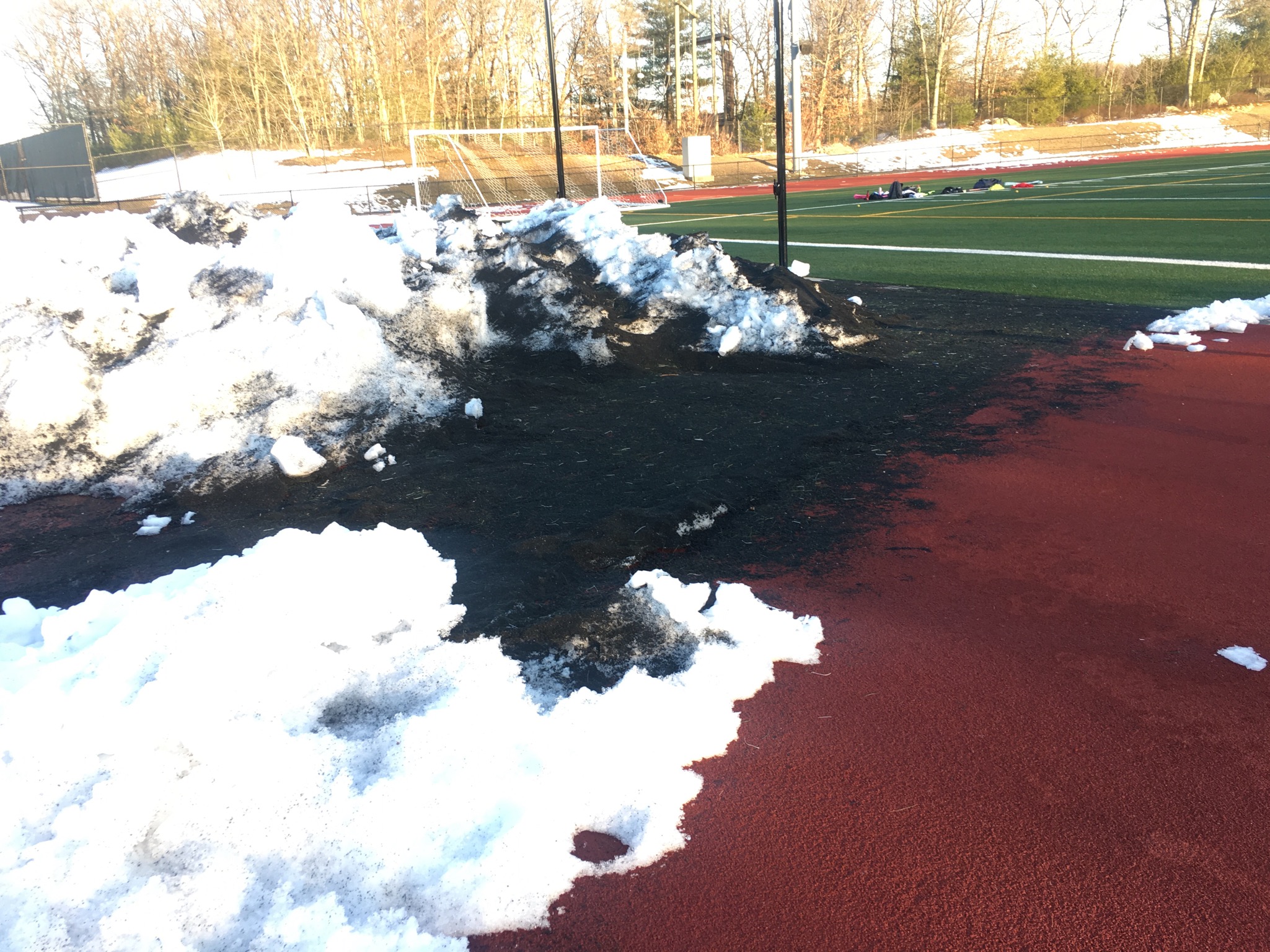
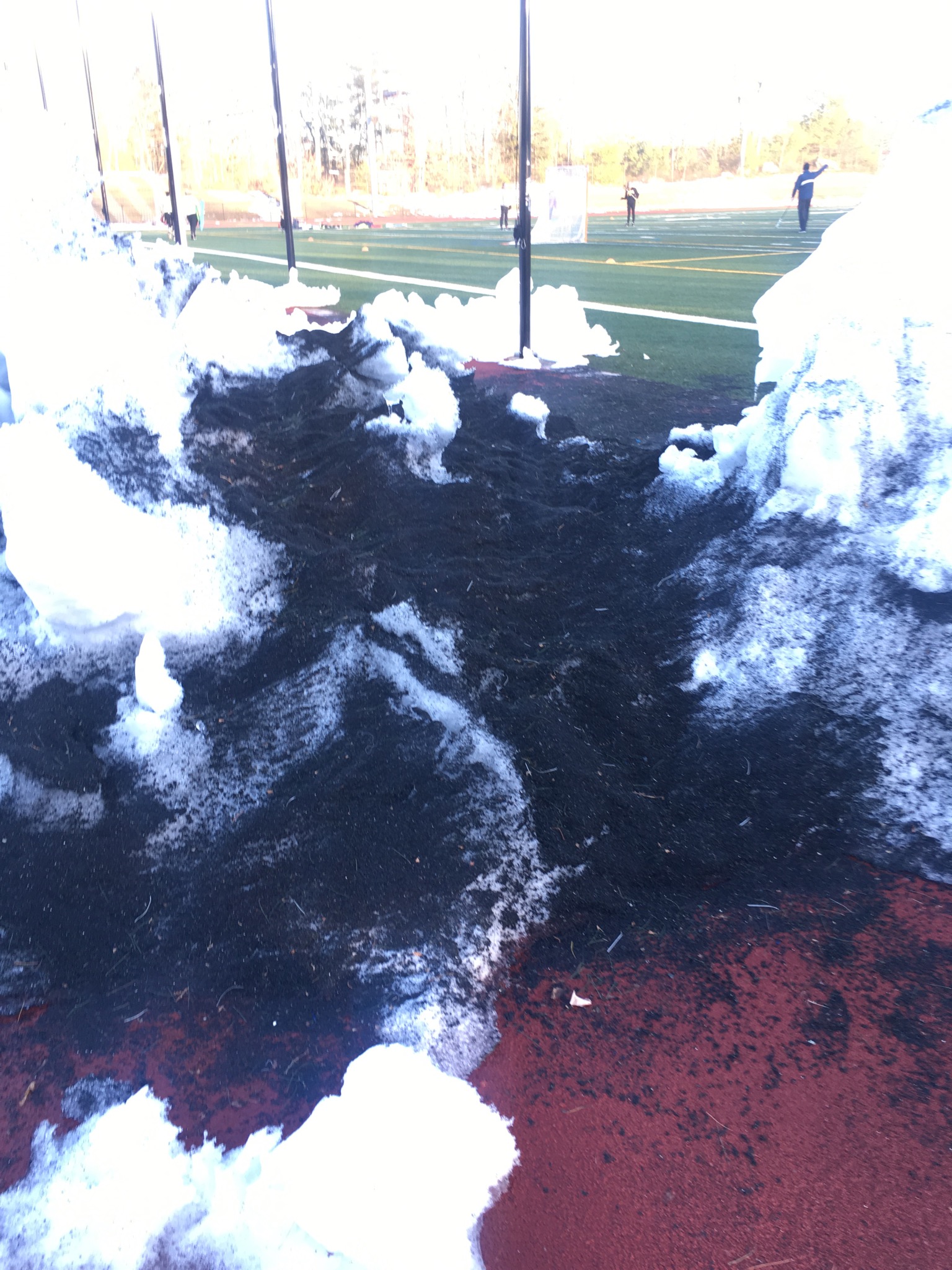
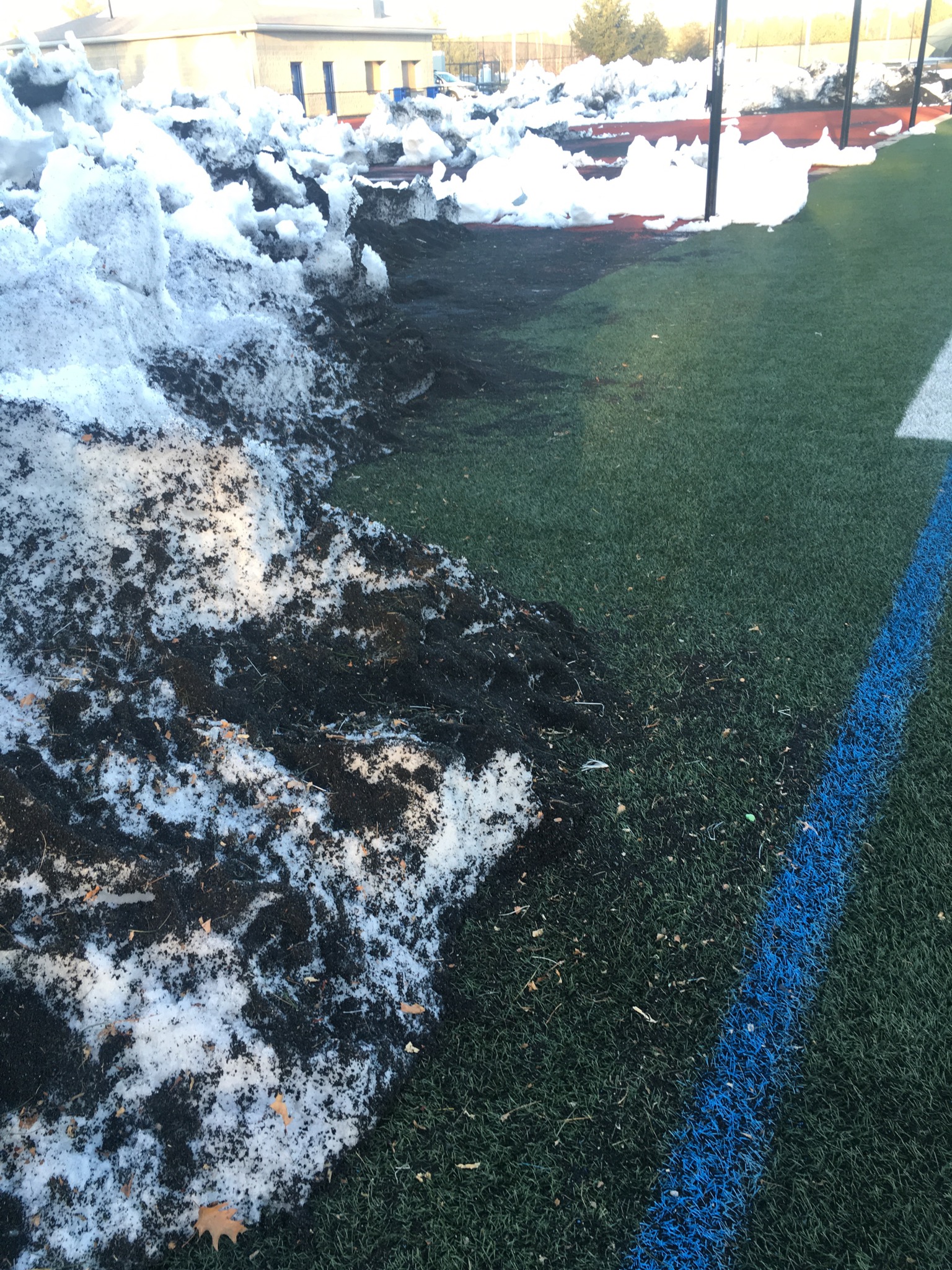
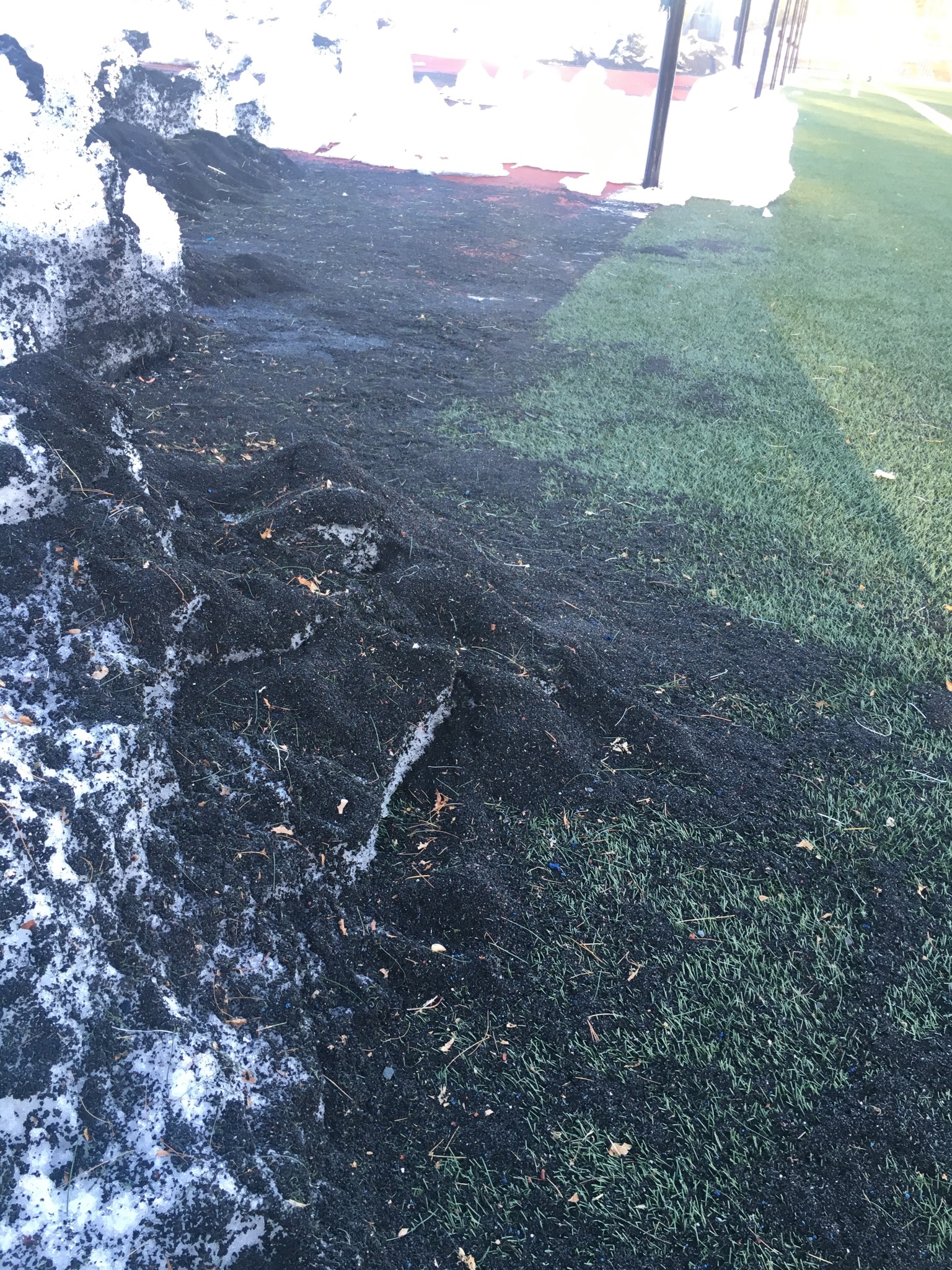

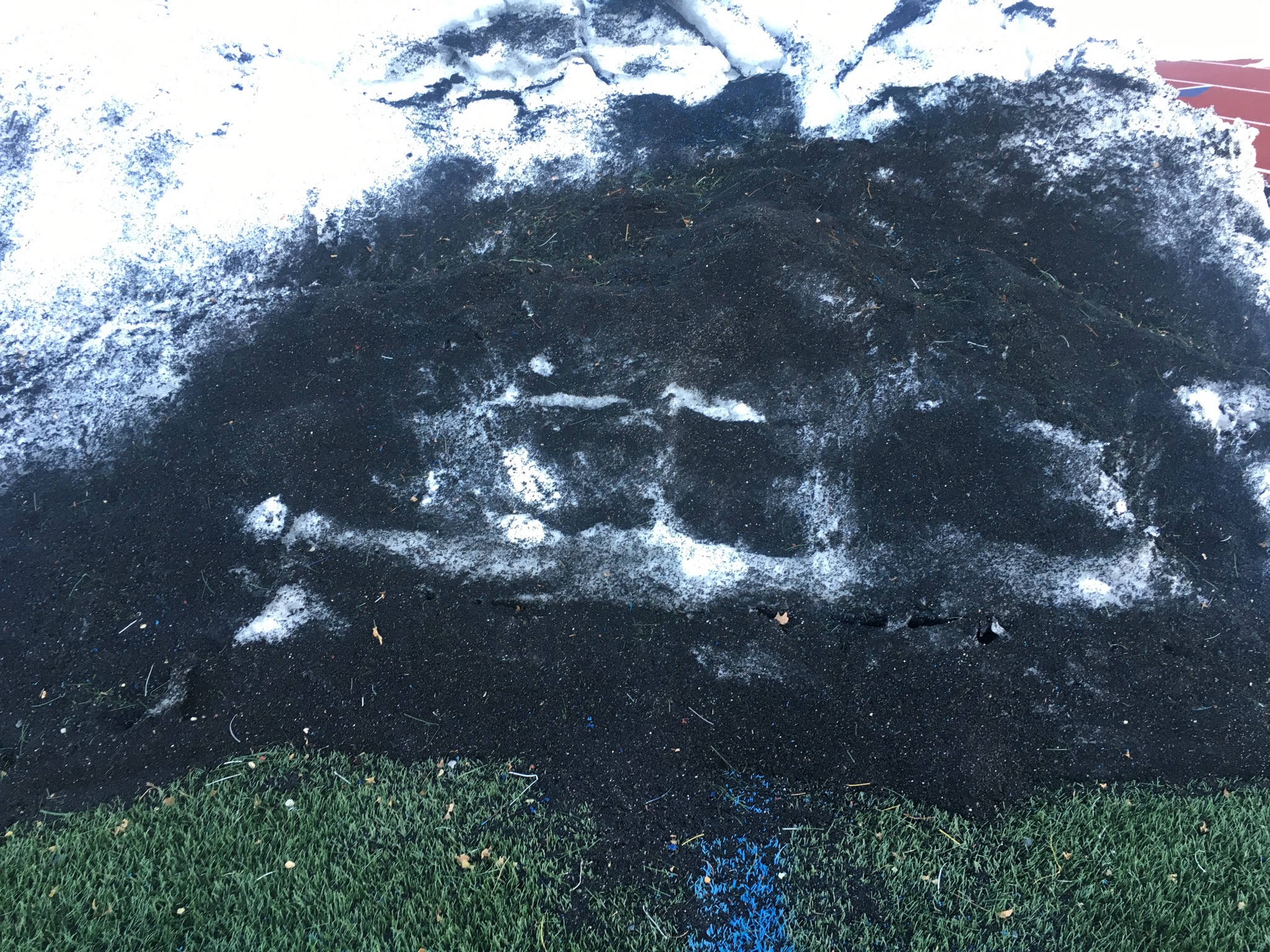


Photos by Tracy Stewart: Medway, MA synthetic turf fields after plowing. (March 23, 2017)
Environmental EFFECTS Of Natural Turfgrass:
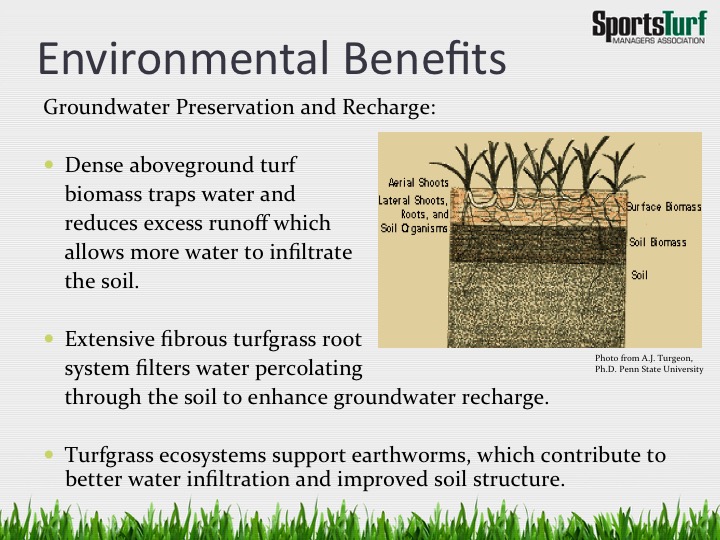
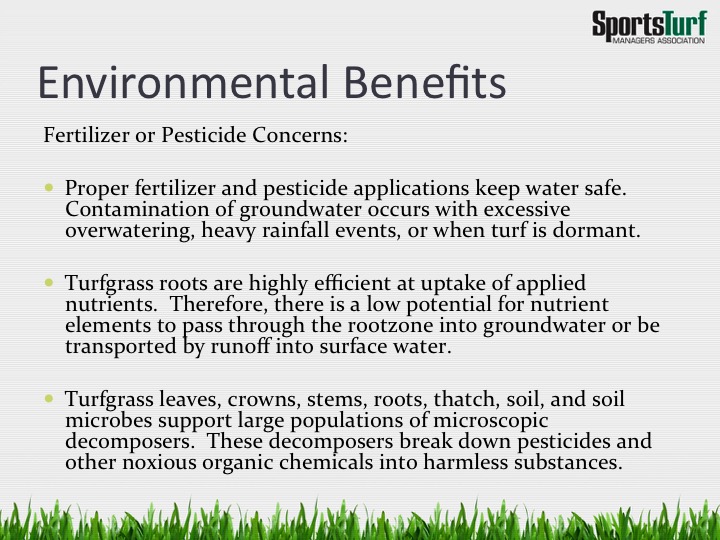
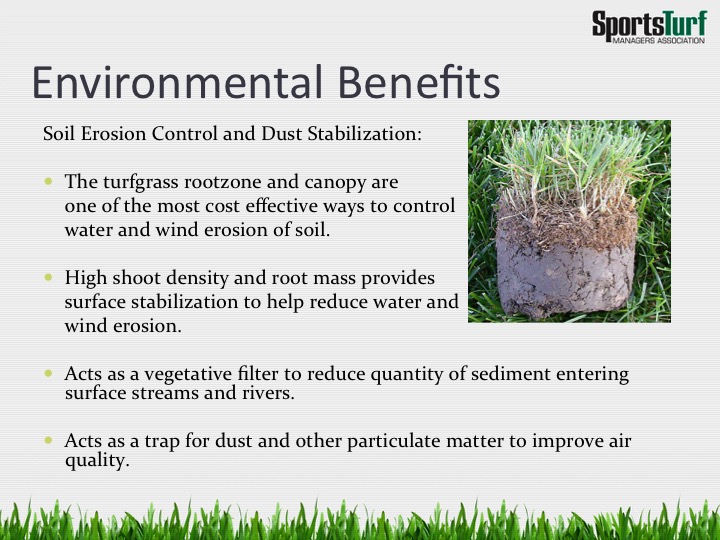
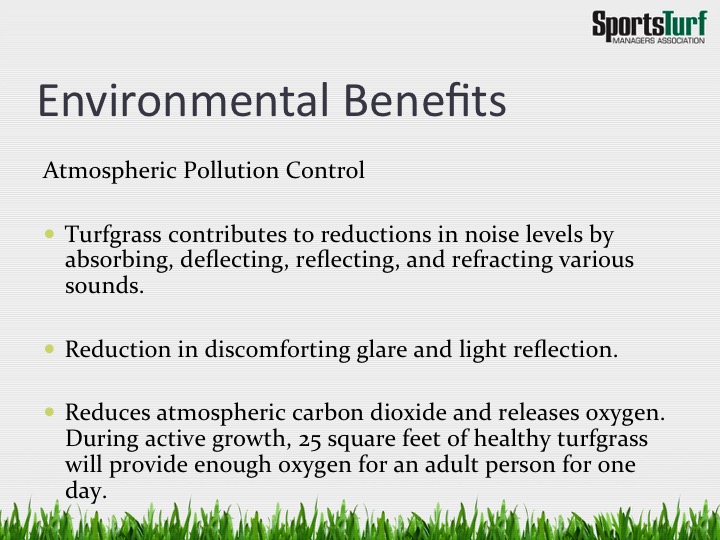
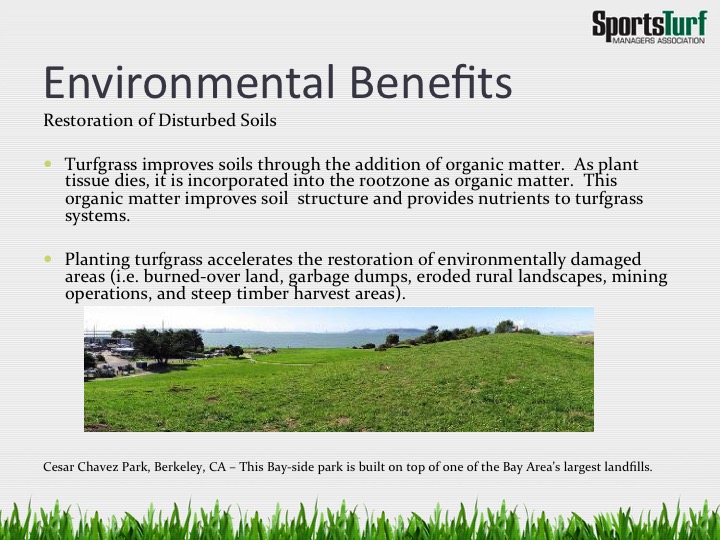
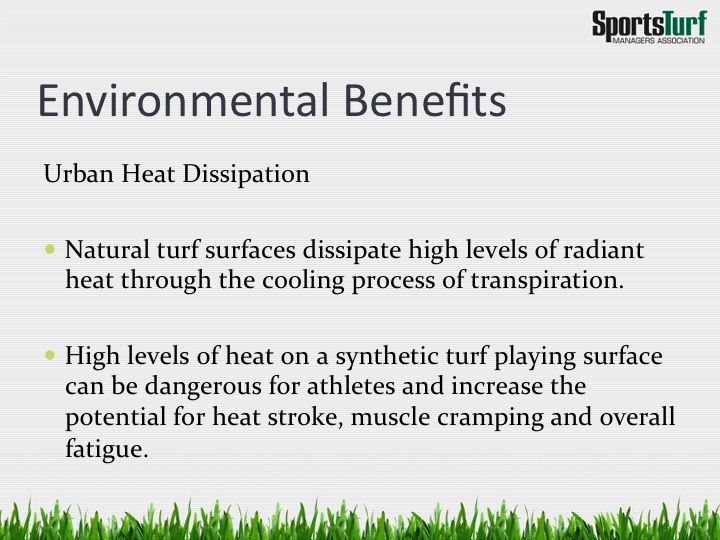
Source: Natural Grass Athletic Fields powerpoint (Sports Turf Managers Association)
